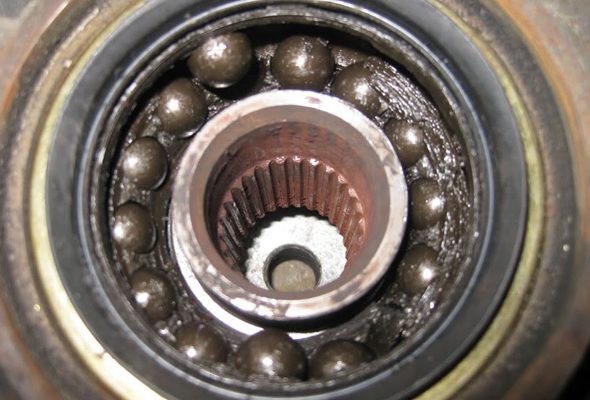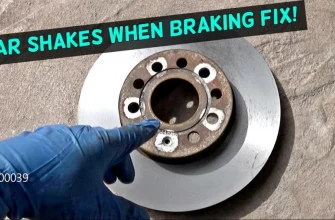Wheel bearings are a crucial component in the smooth operation of any vehicle. Often overlooked, these small but mighty parts play a significant role in ensuring safe and efficient driving. Understanding the lifespan of wheel bearings can not only save you money but also enhance your vehicle’s performance and safety. In this article, we’ll delve into what wheel bearings are, the factors that affect their lifespan, signs of wear, and how to extend their life.
What Are Wheel Bearings?
Wheel bearings are sets of steel balls or rollers encased in metal that allow the wheels to rotate with minimal friction. They are located at the hub of each wheel and are essential for supporting the weight of the vehicle and facilitating smooth wheel movement. The efficiency of these bearings directly impacts the overall performance of your vehicle, including fuel efficiency, handling, and ride quality.
Factors Affecting the Lifespan of Wheel Bearings
- Quality of the Bearings: Higher-quality bearings are designed to withstand greater loads and stress, thus lasting longer than cheaper, lower-quality options;
- Driving Conditions: Frequent driving on rough terrains, potholes, or unpaved roads can significantly shorten the lifespan of wheel bearings due to increased stress and impact.
- Maintenance: Regular maintenance, including lubrication and timely inspections, can help identify wear and tear before it leads to failure.
- Vehicle Weight: Heavier vehicles exert more pressure on wheel bearings, potentially leading to quicker wear compared to lighter vehicles.
- Installation: Proper installation is crucial. Misalignment during installation can lead to uneven wear and premature failure.
Signs of Worn Wheel Bearings
Recognizing the signs of worn wheel bearings early can prevent costly repairs down the line. Here are some common symptoms to watch for:
- Noise: A grinding, humming, or rumbling noise that increases with speed is often a clear indicator of bearing wear.
- Vibration: Excessive vibration in the steering wheel or floorboards while driving can be a sign of a failing wheel bearing.
- Uneven Tire Wear: If your tires are wearing unevenly, it could be due to faulty wheel bearings affecting alignment.
- Play in the Wheel: If you notice excessive movement or play in the wheel when it’s jacked up, this is a strong indication that the bearings need attention.
How to Extend the Lifespan of Wheel Bearings
Taking proactive steps to maintain your wheel bearings can greatly extend their lifespan:
- Regular Inspections: Have your wheel bearings checked during routine vehicle maintenance to catch early signs of wear.
- Proper Lubrication: Ensure that bearings are properly lubricated to minimize friction and heat buildup.
- Avoid Rough Driving: Try to minimize driving on rough roads or through potholes whenever possible.
- Correct Installation: Always ensure that wheel bearings are installed correctly by a professional to prevent misalignment.
- Keep Tires in Check: Regularly inspect and maintain your tires to ensure proper alignment and balance, which helps reduce stress on wheel bearings.
Understanding the lifespan of wheel bearings is essential for any vehicle owner who wants to maintain optimal performance and safety. By recognizing the signs of wear, maintaining your vehicle diligently, and being aware of the factors that affect bearing longevity, you can ensure that your wheel bearings last as long as possible. This not only protects your investment but also contributes to a smoother, safer ride.
Remember, when in doubt, consult with a professional mechanic to assess the condition of your wheel bearings and keep your vehicle running smoothly.
Why Regular Maintenance is Key
Regular maintenance is not just a good habit; it’s essential for the longevity of your wheel bearings. A simple inspection can reveal potential issues before they escalate into more significant problems. During a routine service, mechanics can check for signs of wear, assess lubrication levels, and ensure that the bearings are operating smoothly. This proactive approach can prevent costly repairs and ensure that your vehicle remains safe and reliable.
What Happens When Wheel Bearings Fail?
Ignoring worn wheel bearings can lead to catastrophic failure, which can pose serious safety risks. When a wheel bearing fails, it can cause the wheel to seize or detach from the vehicle entirely, leading to loss of control. Additionally, a failing bearing can damage other components of the vehicle, such as the hub assembly and the brake system, resulting in even more extensive and expensive repairs. Therefore, understanding the risks associated with wheel bearing failure underscores the importance of regular checks and maintenance.
Choosing the Right Replacement Bearings
When it comes time to replace your wheel bearings, the choice of replacement parts is critical. Opting for high-quality bearings from reputable manufacturers can make a significant difference in lifespan and performance. Look for bearings that meet or exceed OEM (Original Equipment Manufacturer) specifications to ensure compatibility and reliability. Investing in quality parts may seem like a higher upfront cost, but it pays off in the long run through improved performance and reduced maintenance needs.
The Role of Environmental Factors
Environmental conditions can significantly impact the lifespan of your wheel bearings. For example, driving in coastal areas where saltwater is prevalent can lead to corrosion and rust, accelerating wear. Similarly, driving in areas with heavy rainfall or snow can introduce moisture and contaminants that compromise the integrity of the bearings. Understanding your local driving conditions can help you take extra precautions, such as more frequent inspections and cleaning to keep your wheel bearings in optimal condition.
So, the next time you’re at your mechanic’s, don’t hesitate to ask about your wheel bearings. After all, a smooth ride isn’t just about the engine; it’s about every little part working in harmony.










A must-read for every car owner! The details about driving conditions affecting bearing lifespan are spot on. Very informative!
Excellent information! I appreciate the tips on extending the lifespan of wheel bearings. Definitely going to implement these suggestions.
Who knew wheel bearings were so vital? This article really opened my eyes to their role in vehicle safety and efficiency. Well done!
This article provides a comprehensive overview of wheel bearings! I never realized how important they are for vehicle performance. Great read!
I found the section on signs of wear particularly helpful. It’s crucial to catch issues early, and this article outlines it perfectly!